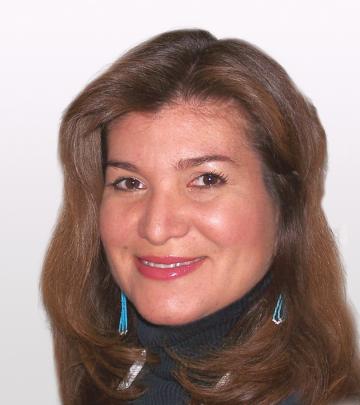Indigenous historian is UVic’s newest Canada Research Chair
- Valerie Shore

An historian who studies how settler societies have impacted Indigenous societies and how Indigenous nations can recover their traditional values is the University of Victoria’s newest Canada Research Chair.
Dr. Waziyatawin (pronounced Wah-ZEE-yah-tah-ween) joined UVic’s Indigenous Governance Program on July 1 for a five-year term as the Canada Research Chair in Indigenous Peoples.
“Through years of collaboration with Indigenous Peoples in Canada and elsewhere, UVic has become a North American leader in research related to governance and developing an understanding of how to redress the ways that Indigenous Peoples have been historically treated by the rest of society,” says Dr. Howard Brunt, UVic’s vice-president research. “This Canada Research Chair will build on those strengths.”
The Canada Research Chairs program is designed to attract the best talent from Canada and around the world, helping universities achieve research excellence in natural sciences and engineering, health sciences, and social sciences and humanities.
Waziyatawin, who is a Wahpetunwan Dakota from southwestern Minnesota, says that UVic’s Indigenous Governance Program was the only one in North America that she was interested in joining.
“What drew me is the program’s intellectual commitment to Indigenous liberation and its dedication to personal decolonization and social action,” she says.
Waziyatawin’s research interests include Indigenous women and the struggle for social justice, the recovery of Indigenous knowledge, and truth-telling and reparative justice. She holds an MA and PhD in American history from Cornell University, and spent seven years teaching history at Arizona State before leaving in 2007 to work as an independent scholar.
“My work is grounded in Indigenous world views and values, especially from a Dakota perspective,” she says. “That perspective has fostered my deep respect for Indigenous knowledge and ways of being that can be seen in all of my research and writing.”
Waziyatawin is the author, editor or co-editor of four books, including In the Footsteps of Our Ancestors (2006), which tells the story of the brutal Dakota Death March of 1862 in which 1,700 Dakota women, children and elders were marched to a concentration camp and eventually expelled from their homeland. Among them was Waziyatawin’s great-great-grandmother.
It’s a dark chapter of Minnesota history that is ignored in the history books, says Waziyatawin, whose research frequently challenges the institutions and systems of “settler society” which, she says, continue to oppress Indigenous Peoples in North America.
“When settler society acknowledges the immorality of processes and actions such as invasion, ethnic cleansing, forced removals, land dispossession, genocide and colonization, we can finally take the first steps toward justice.”
Waziyatawin—whose name translates into “Woman of the North”—says she is looking forward to learning about the history of Indigenous Peoples of British Columbia and Canada.
“Obviously, each Indigenous nation is unique with its own distinct culture and relationship to the land, but the historical experiences of Indigenous Peoples on both sides of the Canada-US border are remarkably similar,” she says.
The latest round of Canada Research Chairs was announced nationally on May 10. Also included were two UVic chair renewals: Dr. Neena Chappell, Canada Research Chair in Social Gerontology and Dr. Sara Ellison, Canada Research Chair in Observational Cosmology. The renewals are for seven- and five-year terms respectively.
See related article, Hopkins appointed Aboriginal Economic Development Chair.

